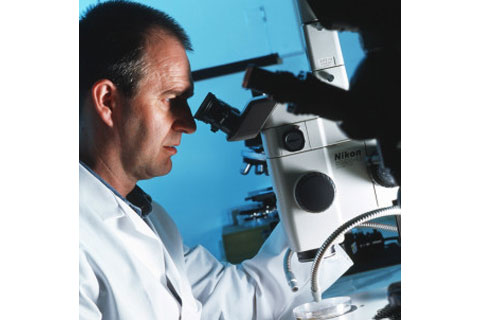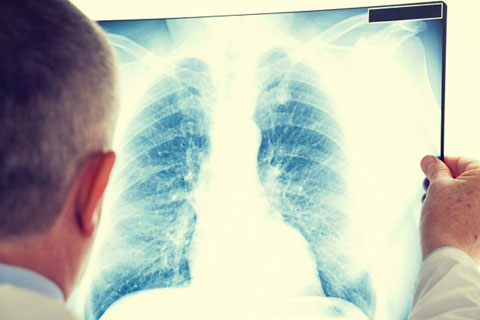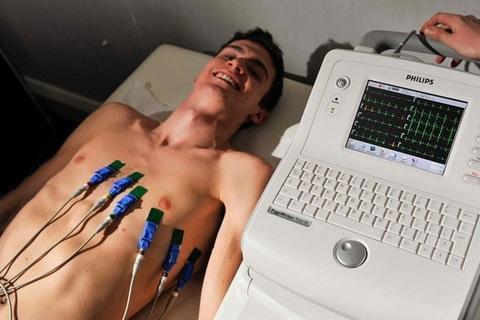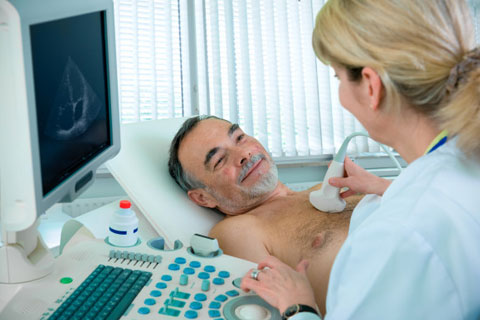How to Prepare for Total Knee Replacement Surgery
Total Knee Replacement Surgery is a big orthopaedic surgery that will not only improve your joint movement, but also enable you to live a fuller and relatively active life. If your knee specialist tells you that you are the perfect candidate for a replacement surgery then there is a certain amount of prep work that you will have to compulsorily do before you go under the knife.
Stages of Osteoarthritis:

Stage 1
Mild Decrease in
joint space

Stage 2
Moderate Decrease in
Joint Space

Stage 3
Medial Compartmental Osteoarthritis

Stage 4
Tricompartmental Osteoarthritis

Stage 5
Subluxation of Knee
What tests are done before Total Knee Replacement Surgery?
There are some tests that you need to undergo before you go in the operation theatre:
Knee specialist, Dr. Amyn Rajani will recommend you to go for a complete physical examination of the Knee Joint. Special care will be taken throughout the examination of the Knee, without causing you any pain. Also, please bring along a list of medications that you are taking currently and get it thoroughly examined by doctor. During this session it is of utmost importance that you mention to the doctor, of any past or present medical illness (Blood pressure problems, diabetes mellitus, heart disease etc). You should also mention if any surgery was performed on you in the past.
Medicines like Ecosprin (Aspirin), or Clopidogrel should be stopped at least 10 days prior to your Total Knee Replacement Surgery.
Once a complete examination is done specialized X-rays of your Knees will be ordered, which will help us to identify the stage of your arthritis and help us go further with Total Knee Replacement for the actual During the Total Knee Replacement Surgery.

Steps after Knee Examination:
- After completion of the clinico-radiological evaluation, you will be explained your disease with the help of animation videos.
- If you are the right candidate for Total Knee Replacement Surgery, the procedure will be explained to you by customized animated videos.
- You will also be shown videos of patients with Arthritis in different stages who have undergone Total Knee Replacement Surgery, with reference to their pre-surgery ability and post-surgery ability videos.
You will also be given a specialized brochure and contact details of various patients operated by Dr. Amyn Rajani, so that you can share your queries and anticipation with them. During this session you are free to ask any queries you may have about arthritis and Knee Replacement.
If at all you require a surgery and wish to get it done by Dr. Amyn Rajani, then a series of investigations will be ordered for you.
Investigations Before Surgery:
Blood Profile:

- CBC, ESR
- FBS & PLBS
- LFT & RFT
- HIV, HBSAG & HCV
- PT & PTTK
- BLOOD GROUPIMG AND CROSS MATCHIMG
Urine Profile:

- URINE ROUTINE & MICROSCOPY
Chest Profile:

- CHEST X-ray ( PA VIEW)
Cardiac Profile:
- ECG

- 2-D ECHO

Once All Investigations are done, you will be asked to see a physician from the team to evaluate the fitness for anestheisa.
Questions to ask before Total Knee Replacement Surgery
Here are a couple of questions that you should ask your knee specialist before undergoing the Total Knee Replacement Surgery:
- What type of anesthesia will I receive?
- How long will I stay in the hospital?.
- How many days will it take to recover?
- What type of exercises should I perform before surgery?
- How will my pain be managed after surgery?
Patient's Guide to Total Knee Replacement
Getting in good physical shape before surgery can lessen the chance of any post-surgery complications and also possibly shorten your stay in the hospital.
Here are some ways in which you can manage to stay in the right physical and mental shape before surgery:
- Have a well-balanced and nutritious diet. Being overweight will put more stress on your newly fitted joint and make your post-surgery recovery process slow
- Ask your doctor about some basic and simple joint exercises that you can comfortably perform weeks prior to the surgery.
- Avoid consumption of alcohol at least 48 hours prior to your total knee replacement surgery.
Exercises before Total Knee Replacement Surgery
Let’s have a look at some of the quick & simple joint exercises that you can perform at home or your workplace before your Total Knee Replacement Surgery:
- Sitting Kicks: An exercise that you can perform while sitting on your living room couch or from your office chair.
- Knee Bending: A simple yet extremely effective exercise which will help you loosen your joint muscles and make your surgery process a tad easier.
- Lying Kicks: An exercise that will relieve that extra stress from your joints.
Date of Surgery:
Once fitness for surgery has been obtained, the next available date will be given to you for the surgery, depending upon the waiting list. After you have specified the hospital and the type of room required for you, the necessary bookings for the room, the Implant (Prosthesis) and the operation theatre will be done.
At the Hospital:
- You will be required to get admitted in the hospital a day prior to the surgery.
- Dr. Amyn Rajani along with the anesthetist will visit you in your room in the evening before the surgery.
- In the morning of the surgery the Knee to be operated will be shaved, scrubbed and covered in a sterile cloth.
- You will then be wheeled in to the operation theatre complex.
Catheterization:
Urinary catheterization is done to monitor the urinary output during the surgery as well as after the total knee replacement surgery. The catheter is removed at 48 hours after the surgery.

